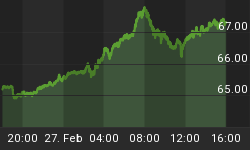Strikingly, the late great bubble of 1996-2000 in the U.S. stock markets represents the first time since economic thinking started that this kind of wealth creation - through rising asset prices rather than through capital formation - found overwhelming attraction and admiration. The old economists never gave it any serious consideration. They flatly discarded it as pseudo or phantom wealth.
What the rising asset values effectively create is a corresponding rise in claims on the economy at the expense of those who do not own such assets. But this is wealth redistribution, not wealth creation. More importantly, this kind of wealth creation involves no gain in current incomes and productive capacity. To the extent that it actually boosts consumption at the expense of investment and the foreign trade balance, the net result from a macro perspective is overall impoverishment.
For the first time ever in the history of economic thinking, economists - that is, American economists - are claiming that growing asset prices represent fully valid wealth creation. In 1996, an article in Foreign Policy entitled "Securities: The New Wealth Machine" effectively explained that the financial markets have become the most powerful generator of wealth.
Verbatim: "Historically, manufacturing, exporting, and direct investment produced prosperity through income creation. Wealth was created when a portion of income was diverted from consumption into investment in buildings, machinery and technological change. Societies accumulated wealth slowly over generations. Now, many societies, and indeed the entire world, have learned how to create wealth directly. The new approach requires that a state find ways to increase the market value of its stock of productive assets. Several countries have successfully directed their economic policies toward that goal, achieving and sustaining faster growth rates than were once thought possible..."
Nowadays, wealth is created when the managers of a business enterprise give high priority to rewarding the shareholders and bondholders...In such a strategy, "an economic policy that aims to achieve growth by wealth creation therefore does not attempt to increase the production of goods and services, except as a secondary objective."
We wondered whether we should reprint such ridiculous economics. We choose to do it because this economic nonsense concisely reflects the confused thinking behind the new equity culture that has spread from America to the rest of the world. Economies exist for the securities markets, say the new equity thinkers; the markets, not the producers in the real economies, create the nation's wealth. Besides, they say, the markets do this much more efficiently by pleasing shareholders and nobody else.
There is one consideration, however, which makes the transient and ephemeral character of wealth "creation" through the markets poignantly clear - namely, the way it is calculated. Trillions of dollars of new wealth simply arise from the common practice of treating the value of the whole outstanding stock of assets as if it could be calculated based on the last stock trading price...which, as a rule, is of marginal size. It is like printing wealth.
Indisputably, the new imperative to maximize shareholder value induced profound changes in corporate strategies. For better or worse, that is the question. Wall Street's propaganda machine, greatly assisted by confirmation through Mr. Greenspan, hammered into people's heads that in America, "unprecedented technological advances in high-tech technology and corporate governance had ushered in a New Era in which businesses were making unprecedented gains in productivity and profitability". Rapidly spreading belief in this nonsense kindled fantastic profit expectations that, in turn, helped kindle the steep rise in stock prices.
Realizing that the traditional process of profit creation through capital formation was much too tedious to satisfy the new, grossly inflated profit expectations in the market, corporations switched massively to new strategies that seemed to promise much quicker and higher returns. Thus, mergers, acquisitions, restructuring, downsizing, outsourcing, cost-cutting, stock buybacks and creative accounting became the main characteristics of the corporate strategies to expand.
While the consensus has been trumpeting a profit miracle, we have been protesting for years that this is impossible. What led us to this opposite conclusion were simple, compelling macroeconomic considerations. They say that there is ultimately but one single way for businesses to increase their profits in the aggregate, and that is by mutually increasing their revenues through higher investment spending. With this rule in mind, we realized that all those new corporate strategies meant to boost profit creation when taken together could only have the opposite effect of depressing profits.
In fact, at the height of the boom, executives and firms faced sharply falling profits, while the prices of their shares, reflecting the inflated profit expectations, were soaring. Most importantly, Mr. Greenspan eagerly supported the stock market boom not only with absurdly euphoric statements, but also with record-high money and credit creation.
Confronted with tremendous pressure from the markets to meet the grossly inflated profit expectations, the great corporate account rigging developed for a straightforward reason. It was the need and desire to cover up the increasingly desperate corporate profits picture, contrasting dramatically with the former high-riding promises. Manifestly, the unfolding epidemic of accounting frauds is not just bearing witness to an unprecedented high level of greed. The far more important aspect is its deeper cause: the horrible reality of Corporate America's worst profit performance in the whole post-war period.
Measured as a share of GDP, profits today are at their lowest level in the whole post-war period. During the last year of the boom, in 2000, before-tax profits of nonfinancial firms were equivalent to 4.3% of GDP. That was down from 6% of GDP in 1997. This plunge of profits has to be seen against the backdrop of 18% GDP growth during this period.
More recently, profits are down further to 3% of GDP. What has hammered the stock market is plainly not a lack of confidence but collapsing profits.
Regards,















